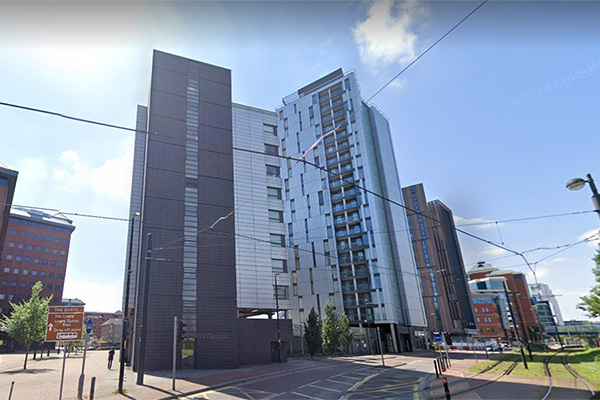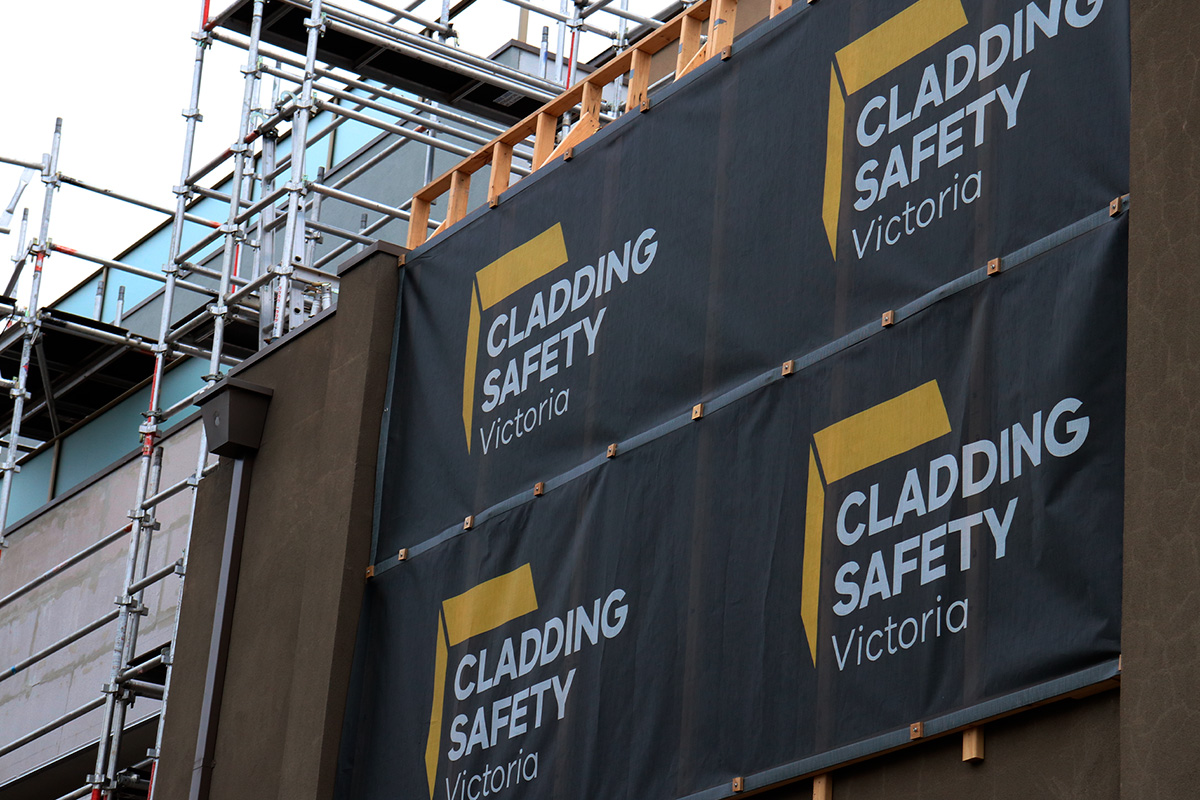You are viewing 1 of your 1 free articles
Leaseholders facing £100,000 remediation bills despite compliant cladding
Leaseholders living in a development in Manchester are facing potential bills of £100,000 – nearly 45% of the original cost of their homes – despite the cladding materials on the buildings being compliant with fire safety regulations.

Residents have received estimates of between £50,000 and £100,000 to fix fire stopping issues and building defects in the Salford development’s two buildings: Millennium Point, which is more than 18m tall, and Millennium Tower, which has 21 floors.
Residents Ammar Hussain and Kitty Nemeth, who only bought their flat last May for £226,000 after being told the building’s cladding was safe, are now facing a bill of around £100,000.
Inside Housing has seen a report from real estate company CBRE that identifies a litany of issues with fire stopping and cavity barriers across both buildings.
These include fire stops being installed the wrong way around or of the wrong size, with CBRE’s engineer uncovering evidence of “possible material substitution”.
The fire engineer also found a “severe base build defect” on Millennium Tower where window elements had not been correctly installed, presenting a high fire risk.
The report concluded that the base build defect and the defective fire cavity provisions meant there was no protection against flames or hot gases entering the properties, and said these defects needed to be remediated immediately.
However, the report also stated that the materials in the buildings’ cladding system are compliant, with the cladding made from solid aluminium and the insulation from mineral wool.
The building’s original developer, Millennium Estates, went into administration in 2009. Laing O’Rourke was the contractor but said it had had no contact with leaseholders or the building management regarding the details of the CBRE report, so couldn’t comment on the technical issues highlighted.
According to leaseholders, the remedial works will involve the removal of the cladding and insulation so the fire stopping issues underneath can be fixed.
These materials will need to be stored, incurring high costs, while that work is carried out. The orginal cladding can then be put back onto the building.
However, as cladding is not an issue, property manager Hadrian Property Management cannot apply for funding from the government’s £1bn Building Safety Fund.
Inside Housing has spoken to leaseholders representing dozens of buildings that have been told of widespread issues with fire stopping and compartmentation that need to be fixed, often costing them thousands of pounds.
In a survey carried out last year with the owners of buildings with aluminium composite material (ACM) cladding, nearly half the buildings that responded also reported issues with compartmentation and fire-stopping. One of the key asks of the Inside Housing End Our Cladding Scandal campaign is that the government’s Building Safety Fund should also cover fire safety issues unrelated to cladding.
In September, leaseholders from both blocks received a letter that estimated the costs of the works on Millennium Tower to be between £7.5m plus tax and £11.7m plus tax, while those on Millennium Point would be between £3.1m and £4.8m. When spread across the development’s 200-plus leaseholders, this works out at around £50,000 to £60,000 on average for – but will be more than £100,000 for some. In Millennium Tower alone there are just 121 leaseholders.
Mr Hussain and Ms Nemeth said that when they bought their flat last May, their mortgage provider required them to provide building drawings and details of materials to show the building was compliant.
The couple said that the news of the bills was a major shock and came at a time when Ms Nemeth had been made redundant after being on furlough since March. They say that it is likely to push back their life plans.
Ms Nemeth told Inside Housing that the were hoping to get married in 2022 and then start a family but expected this to be pushed back now.
Jake Brammer, who lives in Millennium Point, is facing a bill of up to £80,000. He told Inside Housing that he discovered there were issues with the block when he tried to sell his flat.
Mr Brammer said he had potential cash buyers looking at his property, with estate agents recommending that he sell for £60,000 below the unaffected market value of £215,000. However, interest from cash buyers has cooled since the CBRE estimate of costs came in.
The freeholder of the property is Tapestart, trading as Compton Group, a ground rent investor that has more than 55,000 annual ground rent collections across commercial and residential properties in the UK.
A spokesperson for Tapestart said: “Tapestart was not involved in the construction of the Millennium Tower and the Millennium Point. Similarly, under the terms of the lease, Tapestart is not permitted to be involved in the management of the blocks, which is handled by Hadrian Property Management.
“Tapestart has every sympathy with the leaseholders and had Tapestart known about the construction defects, it would not have bought the freehold of the blocks, which was purchased solely as a ground rent investment.
“Tapestart is in close contact with Hadrian over progress with rectifying the construction defects and it has every confidence that Hadrian will find a way forward, hopefully with grants from government which will eliminate (or at worst minimise) the costs for the leaseholders.”
Hadrian Property Management has been contacted for comment.
Hadrian Property Management response
“The safety of our residents is, of course, our paramount concern. At all times we have followed government advice and complied with statutory requirements. We have also engaged with the necessary professionals and sourced the required expert advice, ensuring that we have discharged our legal duties throughout. We have communicated with leaseholders and residents, keeping them fully informed and updated with regular letters, emails and, recently Zoom meetings.
“Mindful of these issues on leaseholders, both emotionally and financially, we have encouraged the setting up of a Resident’s Association; this is now established and we conduct regular meetings with the Association’s representatives. Dreadful as this situation is, we are working well with them, collaborating effectively, and utilising our combined resources and experience as we explore all possible avenues to seek solutions.
“We have written on leaseholders’ behalf to numerous bodies, not least Robert Jenrick, Rebecca Long-Bailey, The Mayor of Salford, The Building Safety Fund (having registered in July and still not knowing if we are eligible to make a full application) and various newspapers (including the Sunday Times who are running a campaign). The only response we have had is from Rebecca Long-Bailey.
“We are fully supportive of the finding of the recent HCLG Committee report, which specifically says that ‘leaseholder should not be expected to foot the bill for failures that were not their making”. We urge the government to listen to that advice and provide funding to remedy these defects in the first instance, thereafter pursuing parties who may have been negligent when the buildings were built. The alternative, at the moment, is an impossible situation where a management company like ourselves have a covenant to pay, yet the sums required are, for the vast majority of leaseholders, completely unaffordable.”












